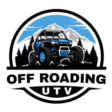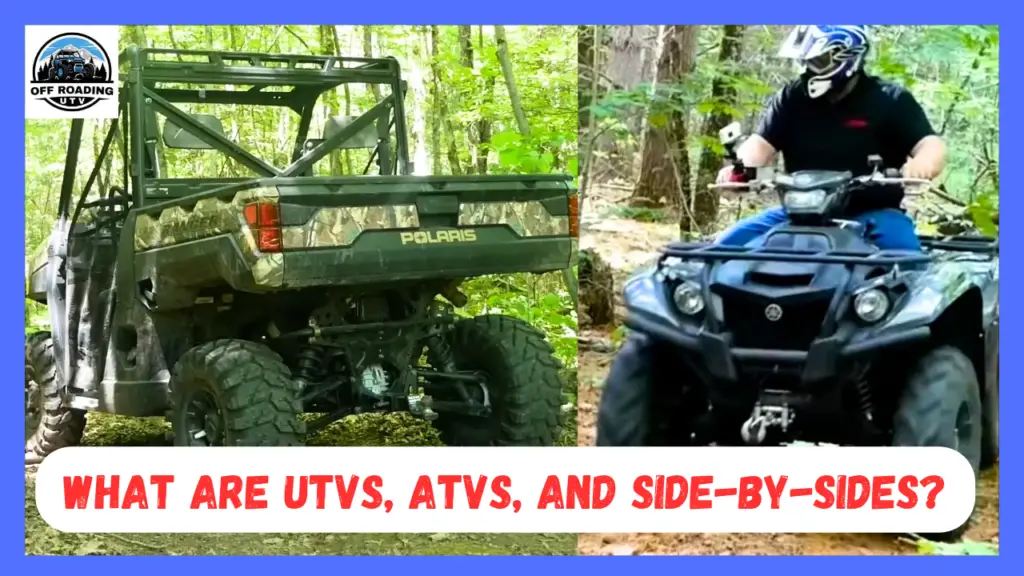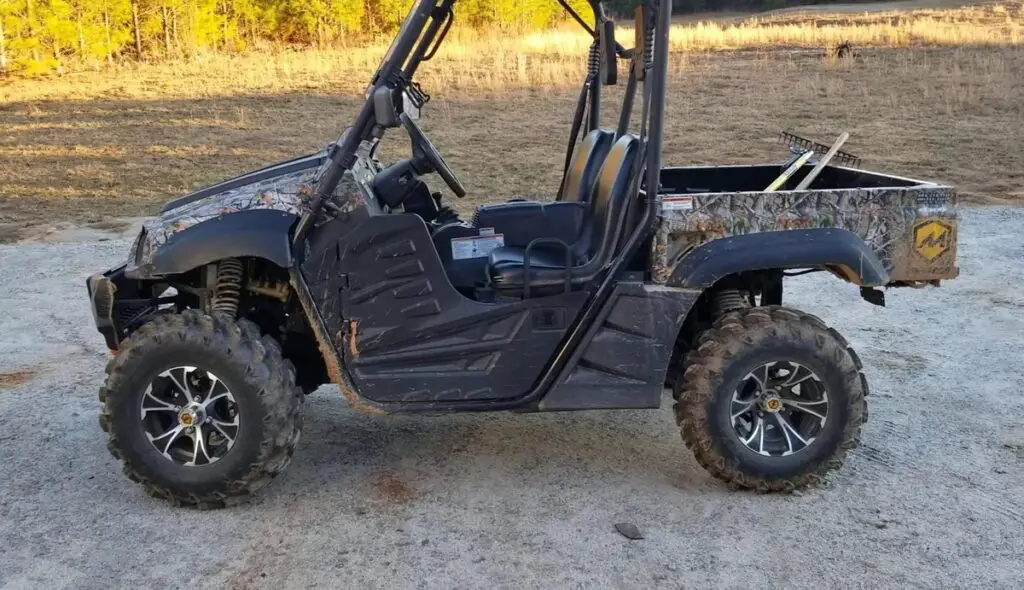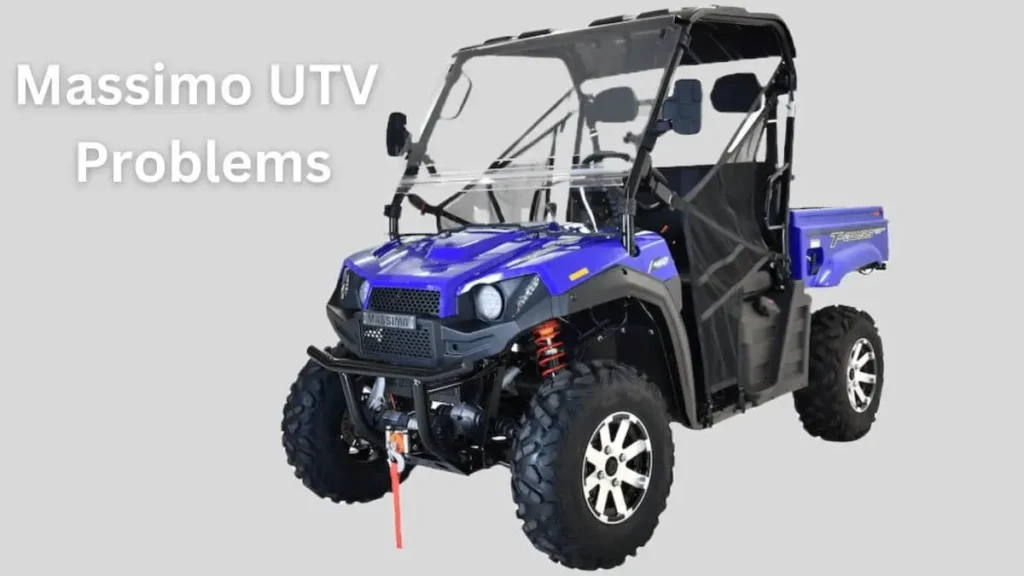UTV is a large off-road vehicle that can do utility tasks on rough terrain, can carry passengers, and cargo.
UTVs are mainly used in the adventure, farming, and sporting sectors.
Introduced with a roll cage and vehicle weight proportion (GVWR), they are also used in business sectors like construction, heavy duty, etc.
They are often referred to as off-road vehicles (ROVs) or multi-modular vehicles (MOHUVs).
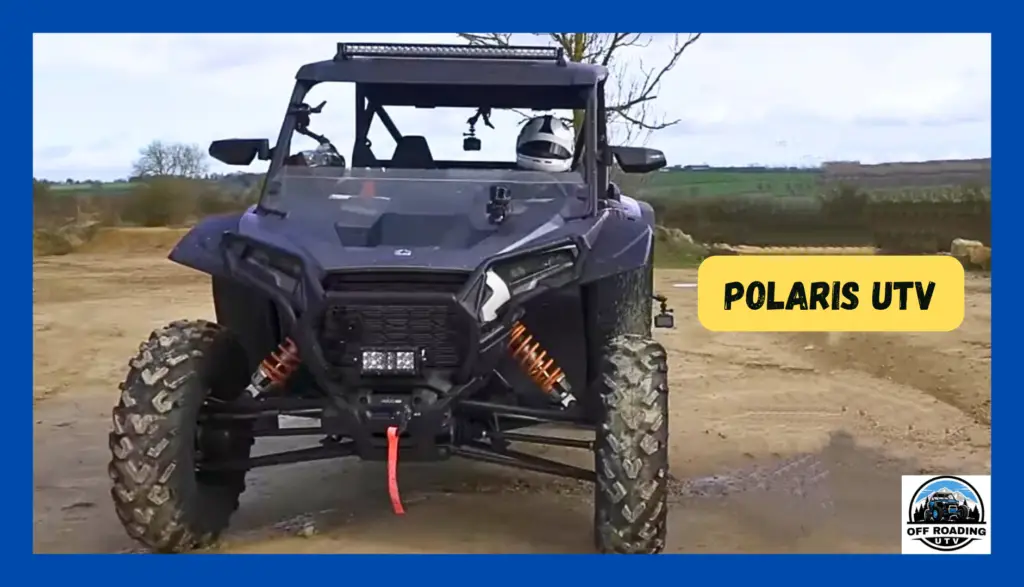
ATVs are Four-wheeled vehicles or quads, which are different names for off-road vehicles.
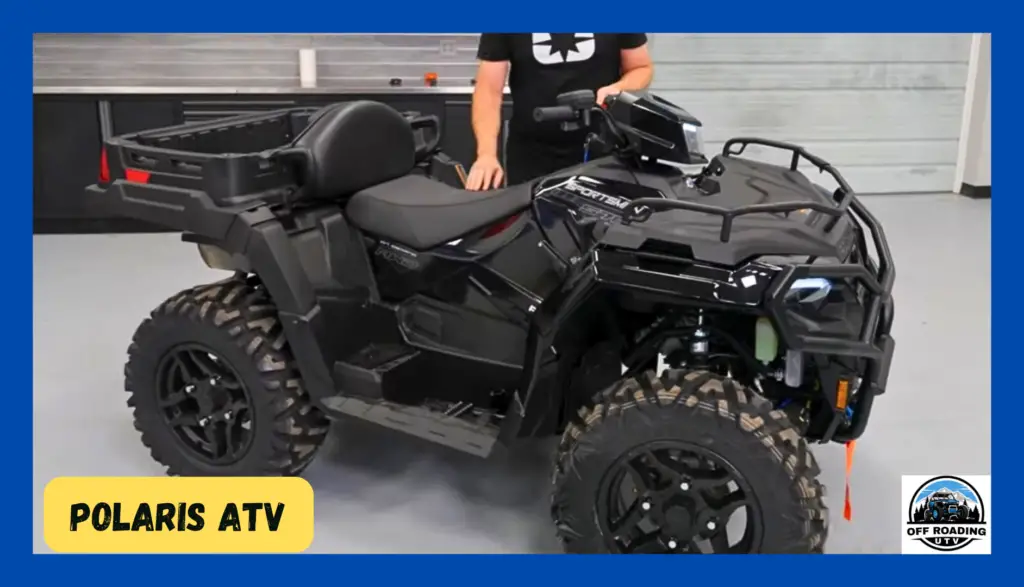
OHVs are used in many great enterprises such as agriculture, construction, and recreational industries, as per the American National Standards Institute (ANSI).
Side-by-sides are rough terrain vehicles with at least two seats coordinated next to each other.
Side-by-side vehicles are used for work and adventure purposes.
They have features like roll cages, adjustable suspension, cargo bed, etc.
The safety features include helmets, seat belts, safety bars, etc.
UTVs can be used for agriculture, business, hunting, and off-roading adventures.
The best UTV Models are the Can-Am Maverick, Honda Pioneer, Polaris RZR, Polaris Ranger, and Yamaha YXZ.
UTVs have advantages such as sturdiness, adaptability, stability, comfort, etc.
The main disadvantage of the UTVs is the high cost.
What are the safety measures while driving UTVs and ATVs?
The safety measures for driving UTVs and ATVs are seat straps, caps, gloves, goggles, and helmets.
The US CPSC, a safety agency that promotes ATV, and OHV safety by counselling users.
To stay safe, riders should:
- Ride a right-sized vehicle for their age and skill level.
- Load/unload correctly to prevent accidents.
- Properly tow cargo to avoid imbalances and mishaps.
- Handle slopes with care to maintain control on rough terrain.
- Slow down after dark, as visibility decreases significantly at night.
- Keep off paved roads, as these vehicles are designed for off-road use only.
- Keep limbs close to you while riding to avoid injuries from external obstacles.
Which Off-road vehicle is safer, an ATV or a UTV?
UTV is generally more secure than an ATV due to its roll confine, safety belts, and stronger frame.
What to ensure before your first UTV or ATV ride?
Before your first UTV or ATV ride, ensure you’re protected by wearing Protective Off-road Gear, completely Inspecting Off-Road Vehicles, and being completely mindful of the Controls & Parts so you can work in peace.
Which rough terrain riding abilities are valuable for fledglings utilizing UTVs and ATVs?
If you are a UTV or ATV drivers you need to always focus on safety. Take steady turns to navigate tight trails, drive at controlled speed, stay balanced on rough and uneven terrain.
What are the best off-roading practices for UTV and ATV beginners?
Keep away from Not Knowing the Laws and Regulations and cease driving fast, as both can prompt mishaps or legitimate issues while rough terrain riding. Continuously focus on security and consistency.
What prevention should I take while off-road riding?
While off-roading you should wear a seat belt, and helmet. You need to always maintain proper posture for safety. Make sure the terrain is suitable for your UTV and keep a steady grip on controls.
What are the famous 8 golden rules of UTV & ATV safety?
1. Continuously wear defensive stuff.
2. Attach safety belts in UTVs.
3. Ride a vehicle fit to your size.
4. Assess the vehicle before riding.
5. Never ride on cleared streets.
6. Adhere to all regulations and guidelines.
7. Abstain from speeding or foolish driving.
8. Practice trail manners and ride dependably.
Do I need an ATV safety course in Texas?
Indeed, an ATV safety course is expected for riders under 14.
What are the UTVs and ATVs use cases and applications?
UTVs and ATVs are utilized in military tasks, such as during the 2022 Russian invasion of Ukraine, where Stugna-P rockets were mounted on Distraught Max-style carts, like those utilized by US Marines.
Here are some important use cases of UTVs:
Adventure
Hunting
Construction
Diversion
Work
Agribusiness
Grass cutting
Development work
Property looking over
Setting up camp
Snow furrowing
Ice fishing
Touring
Dashing
CLEANING YOUR YARD
CHECKING Walls, Wall Building
CHECKING AND MOVING Animals, Domesticated Animals Care
SPREADING SALT
GETTING TO WORK IN THE SNOW
Property Cleanup
Weed Control
Towing Gear
Investigation
Finishing and Planting
Cutting Your Grass
Asphalt Driving
Business Use
Public and Crisis Administrations
Motorsports
Horticulture
Overlanding
What are the types of off-road riding?
The various types of off-road riding are green laning, offroad racing, snow plowing, desert racing, etc…
- Off-road Racing: Competitive driving on rugged terrains with specialized vehicles.
- Green Laning: Leisurely exploration on public, unpaved trails using 4×4 vehicles.
- Baja: High-speed desert racing featuring endurance and rough landscapes.
- Beach Racing: Racing on sandy beaches requires wide-tire vehicles for traction.
- BMX: Off-road bicycle racing on dirt tracks with jumps and sharp turns.
- Desert Racing: Long-distance racing across arid desert terrains.
- Dirt Track Racing: High-speed races on oval dirt tracks using modified vehicles.
- Dune Bashing: Thrilling rides over dunes in powerful off-road vehicles.
- Enduro: Endurance-focused motorcycle racing on challenging trails.
- Formula Off-Road: Climbing steep terrains with powerful, purpose-built vehicles.
- Mud Bogging: Driving through deep mud pits, testing vehicle power and driver skill.
- Motocross/Sidecar Cross: Off-road motorcycle racing, with sidecar options for team challenges.
- Observed Trials: Motorcycle skill challenges over natural and artificial obstacles.
- Rallycross: Mixed-surface racing combining asphalt and dirt tracks.
- Rally Raid: Multi-day endurance racing over rugged terrains and deserts.
- Rock Crawling: Slow, technical driving over boulders and rocky landscapes.
- Short Course Off-road Racing: High-speed racing on closed, off-road circuits.
- Off-road Vehicles: Specialized machines like ATVs, UTVs, SUVs, and dirt bikes for varied off-roading adventures.
What are the types of off-roading vehicles?
The various types of off-roading vehicles are ATV, Buggy, Quad, Dirtbike, etc…
- All-terrain Vehicle (ATV): Compact, versatile vehicles for rugged terrains.
- Buggy (Baja Bug, Dune Buggy): Lightweight vehicles designed for sand and desert use.
- Cross-country Rallying Vehicles: Specialized Group T1–T5 vehicles for endurance racing.
- Quad: Four-wheeled off-road vehicles for recreational and utility use.
- RallyGP/2/3: High-performance motorcycles designed for rally racing.
- Crosskart: Small, lightweight off-road karts for fast and agile riding.
- Dirtbike (Dual-sport, Enduro, Trials): Motorcycles for various off-road terrains.
- Four-wheel Drive (4WD): Versatile vehicles with excellent off-road capability.
- Monster Truck: Large, modified trucks for extreme off-road challenges.
- Off-road Go-kart: Compact karts for fun on dirt tracks and trails.
- Rally Support Truck: Heavy-duty trucks assisting rally teams during races.
- Rock Crawler: Vehicles with modifications for climbing rocky terrains.
- Sandrail: Lightweight, open-frame vehicles for dunes.
- Side-by-side (UTV): Utility Terrain Vehicles for two or more passengers.
- Trophy Truck: High-performance trucks built for desert racing.
- Truggy: Hybrid vehicles combining features of trucks and buggies.
- Multi-purpose Models: Adaptable vehicles for both off-road and on-road use.
What are the advantages and disadvantages of ATVs vs. UTVs?
The advantages of UTVs are higher towing capacity, higher payload capacity, can carry passengers, and provide stability.
The disadvantages of UTVs are hard to maneuver in tight spaces, more maintenance costs, low fuel efficiency, etc…
The advantages of ATVs are compact, lightweight, and perfect for single rider.
The disadvantages of ATVs include no cargo space, no passenger seat, less comfortable for long journey, etc…
Four-wheeled vehicles or ATVs, are made particularly for riders and are ideally suited for sports, street outings, and relaxation exercises.
ATVs with hand mounts on the guiding wheel flourish with mobility and are lightweight, making them ideal for testing trails and steep landscapes.
They don’t, be that as it may, have the size, capacity, or payload room of UTVs.
UTVs with their four-wheel-drive (all-wheel drive) arrangement, give more traveler impressions and bigger freight for business purposes.
They accomplish more territory work and greater adaptability, making them reasonable for work and leave.
The compromise comes with greater expense and support, and the cost is regularly higher than ATVs.
Eventually, ATVs are better for game and solo undertakings, while UTVs are liked for work and rough terrain vacations.
Here is the table of pros and cons of ATV vs UTV:
Advantages & Disadvantages of All Terrain Vehicles:
| Advantages ✅ | Disadvantages ❌ |
| ✅ Compact & agile for tight spaces | ❌ Less comfortable for the long journey |
| ✅ Very easy to transport | ❌ Only for single rider |
| ✅ Best for the single rider | ❌ No seating for passengers & no space for cargo |
| ✅ Lightweight & more fuel-efficient | ❌ Less suitable for rugged off-roading |
Advantages & Disadvantages of Utility Terrain Vehicles:
| Advantages ✅ | Disadvantages ❌ |
| ✅ Stable & secure because of larger wheelbase | ❌ Lower fuel efficiency |
| ✅ Can carry passengers (4+) | ❌ Expensive & more maintenance costs |
| ✅ Higher towing ability & payload capacity | ❌ Hard to maneuver in tight spaces |
| ✅ Accessories & upgrades available | ❌ Larger & bulkier, hard to transport |
Which is better for ATV or UTV during trail riding?
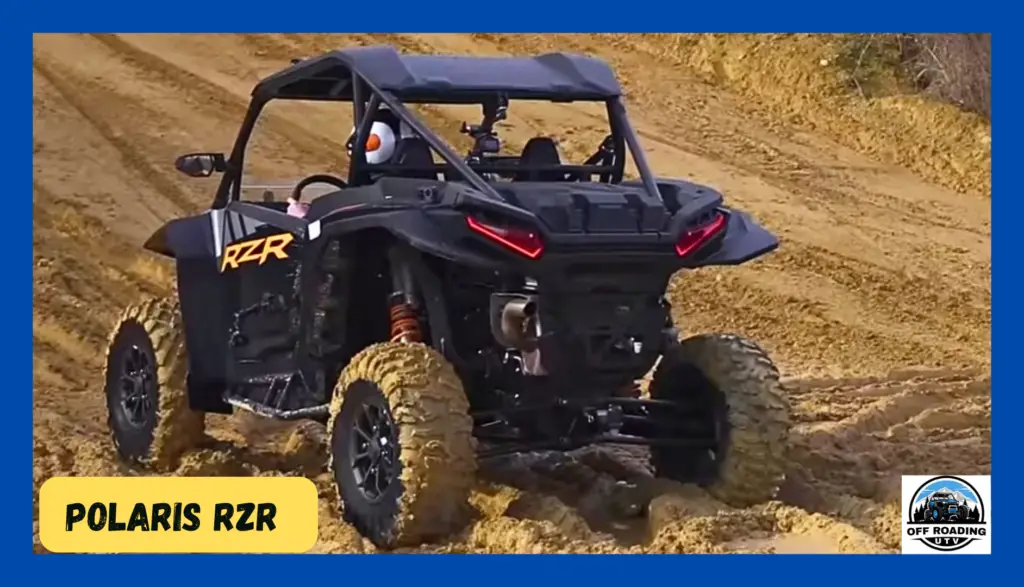
ATV is better for trail riding because ATV can twists and turns very easily, and UTV, like the Polaris RZR Trail S 1000, suits multiple passengers with a higher load capacity.
What to choose for hunting ATV or UTV?
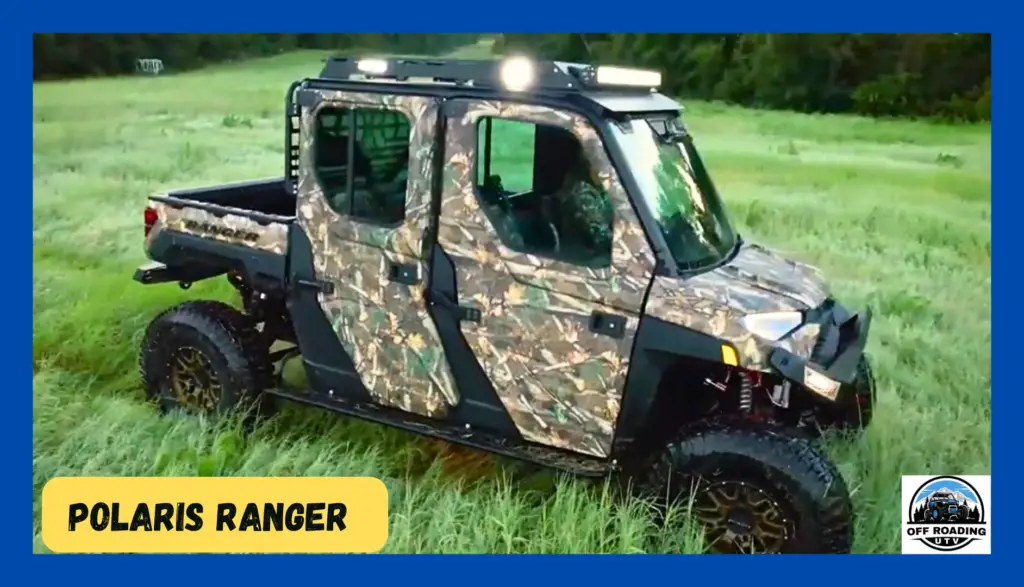
You should choose UTV For hunting because UTVs are perfect for carrying steep backpacks, and carrying supplies to deer stands or duck blinds, while ATVs are suitable for solo anglers traveling with limited gear.
Which is better for farming? ATV or UTV
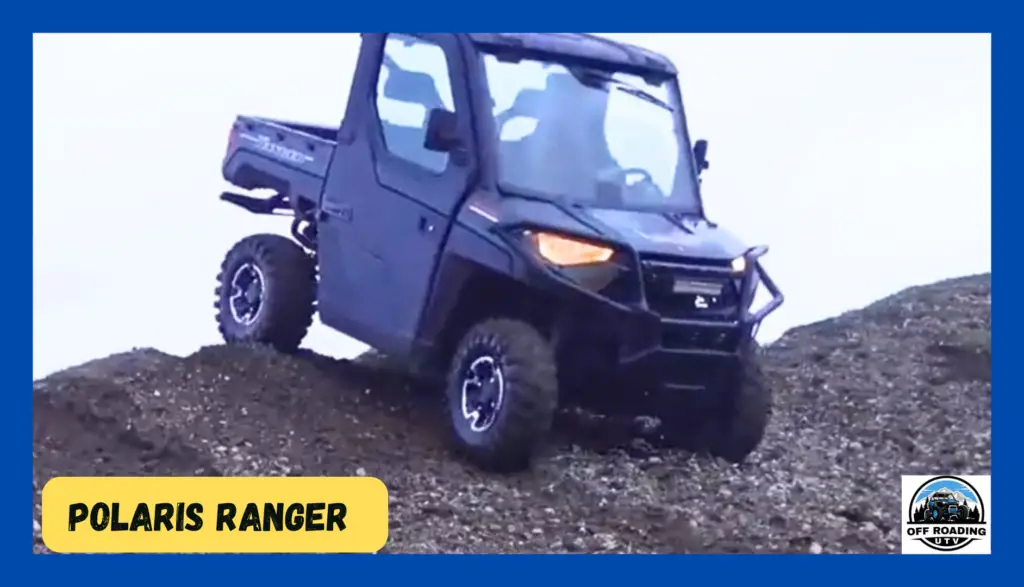
UTV are better for farming for sure. Ranchers and landowners prefer UTVs over ATVs in agriculture because they have greater luggage room and are better suited to managing everyday tasks involving several passengers.
Is ATV or UTV better for snow plowing?
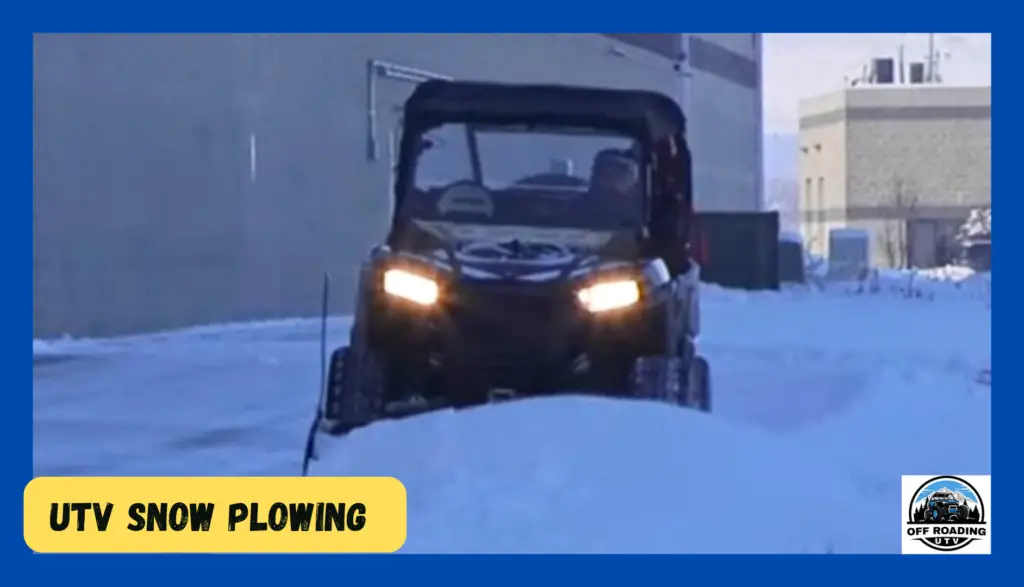
UTVs are better than ATVs for snow plowing.
For hauling and fishing, which one to choose: ATV or UTV?
UTV is best than ATV for hauling and fishing due to its bigger freight region, more freight limit, and the capacity to convey stuff and hardware over exceptionally steep landscapes.
Is ATV or UTV better for riding with family?
UTV is superior than ATV for riding with family because it offers six seats (four adults and two kids) and gives more space and safety for an amazing ride.
In general, which is better for off-roading ATV or UTV?
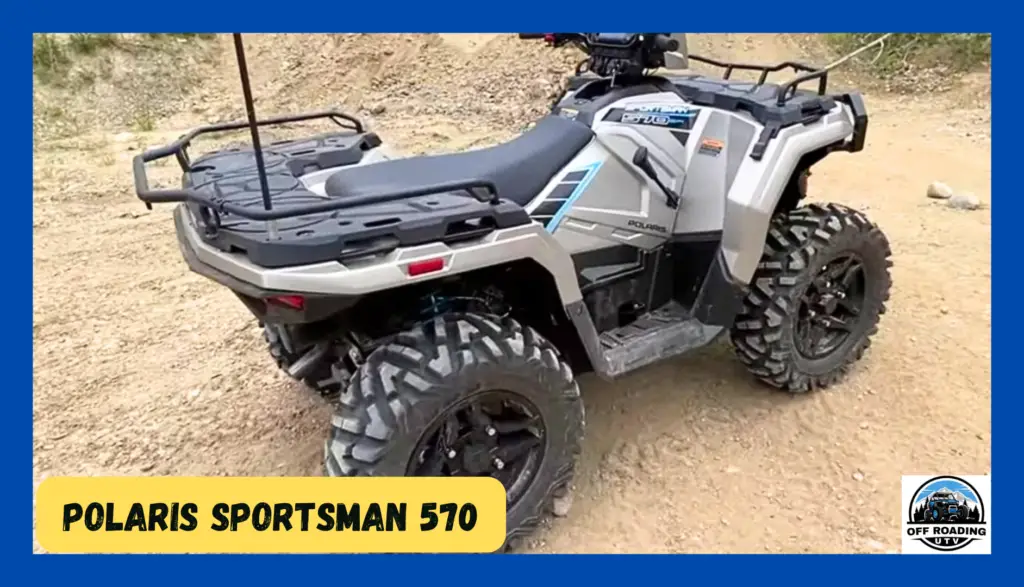
UTV is better for off-roading than ATV because UTV provides more stability for off-roading adventure.
Which one should you buy, UTV or ATV?
For solo riding and more tight paths, an ATV is great.
For family trips, pulling freight, or tough landscapes, a UTV is better.
When to use which off-roading vehicle, ATV or UTV?
Utilize an ATV for troublesome rough terrain trails and solo exercises like hunting/fishing, or when you need to set aside cash.
Pick a UTV for pulling freight, vacations, or harder undertakings.
What is the difference between ATV and UTV insurance?
The main difference between ATV and UTV insurance is ATV insurance covers ATV vehicle for personal uses, while UTV insurance covers utility vehicle that can carry passengers or cargo.
UTV insurance mostly cover more coverage options because of it’s size, and use.
ATV protection, for the most part, covers single inhabitants and more modest vehicles, while UTV protection covers bigger multi-traveler vehicles with numerous freight vehicles.
What are the advantages of UTVs compared to ATVs?
UTVs offer incredible solace, particularly for some travelers, and make transportation a lot more straightforward.
They likewise offer better customization choices for explicit necessities, offering more flexibility than ATVs for various applications.
What are the main benefits of UTVs compared to ATVs?
The main benefits is ATVs are only for single rider, while UTVs can carry upto 6 passengers.
What are the major features of ATVs and UTVs?
Major features of UTVs:
Seating Capacity: 2-6 passengers
Engine: 400cc to 1000cc.
Cargo Bed: upto 1500 lbs
Suspension: advanced suspension
Roof & doors
Towing capacity: upto 2000 lbs.
Major features of ATVs:
Engine: 100cc to 1000cc
Suspension: Independent suspension
Seating Capacity: 1
Payload Capacity: upto 200 lbs
Transmission: Automatic or Manual
Tires: All terrain tires
Should I choose an ATV or UTV for recreational and utility work?
You should always choose UTV for recreational and utility work. An ATV is intended for on-street and rough terrain travel, while a UTV spotlights utility and land use in various ways.
What are UTVs and ATV regulations and uses in Kansas?
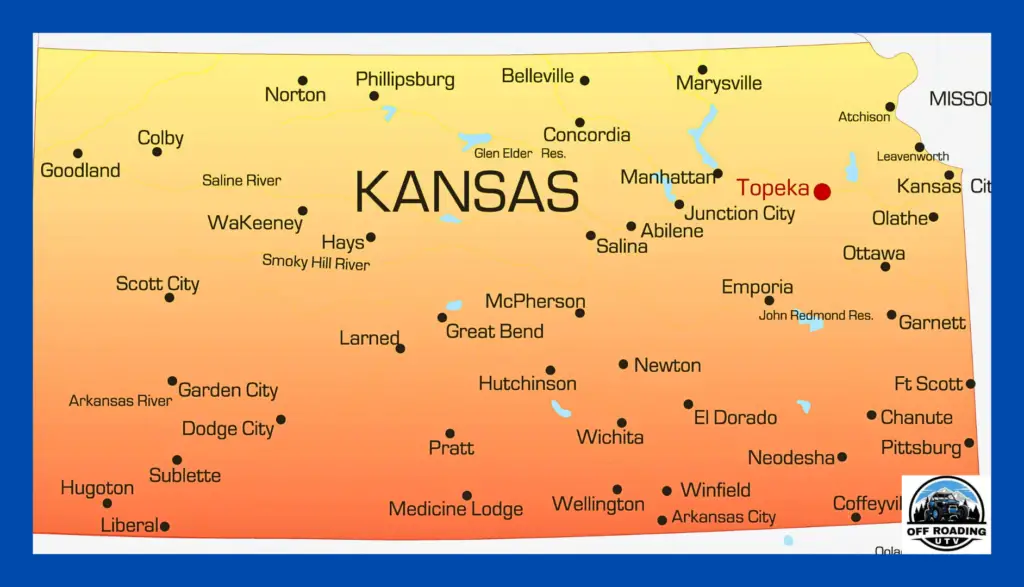
In Kansas, UTVs and ATVs should follow state OHV guidelines, including enrollment and age limitations.
Their purposes incorporate cultivating, amusement, and hunting, yet they are by and large precluded on interstates aside from crossing.
What are UTVs and ATV regulations and uses in Colorado?
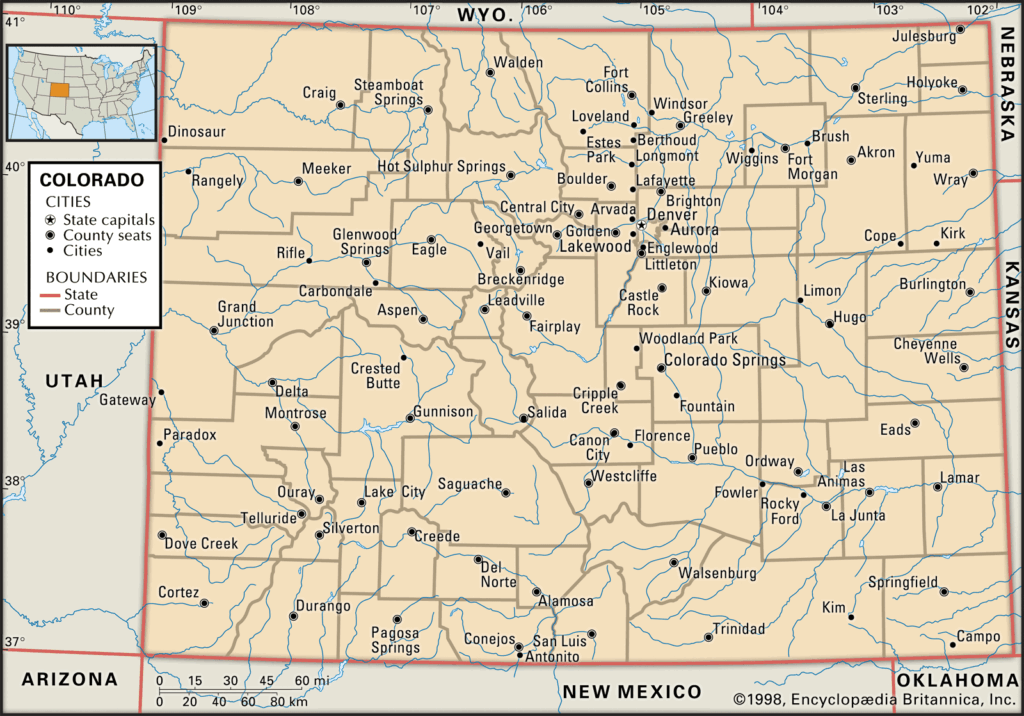
Colorado requires OHV enrollment and a Colorado OHV sticker for use on trails for UTVs and ATVs.
They are considered amusement, hunting, and farming.
However, they are restricted on open expressways except at intersections or assigned trails.
Riders younger than eighteen are expected to wear protective caps.
How many people can fit in an ATV?
ATVs are made for only single rider.
How many people can fit in a UTV?
A UTV can normally convey somewhere in the range of 2 and 6 travelers, contingent upon the model. Bigger UTVs are intended for families or camping.
How is driving a UTV so much more fun than an ATV?
Driving a UTV really gives you more fun than an ATV because of UTV’s superior build and controls. UTVs offer more stability and comfort.
Do crossover UTVs and ATVs exist and what are those?
Crossover UTVs and ATVs consolidate components of the game and utility models, giving tomfoolery and flexibility, upgraded by further developed development, rough terrain abilities, and versatility to various territories.
Are ATVs or UTVs more secure?
UTVs are by and large thought to be more secure than ATVs on account of their encased lodge, roll enclosure, and strength.
ATVs will generally be upset and require a lot of expertise and ability to securely work.
UTV & ATV’s most famous producers (Polaris, Yamaha, Can-Am, Kawasaki)are eminent for their exhibition, trustworthiness, and state-of-the-art rough terrain autos.
What to know about the performance and handling of ATVs and UTVs?
UTVs give you more stability, comfort, power, and passengers capacity, while ATVs are made for solo rider.
What are the licensing and regulations for UTVs and ATVs?
Here is the table of licensing and regulations for UTVs and ATVs:
| Country | License Requirements | Registration Requirements | Official Authority |
| US | Varies by state; may require a driver’s license or safety training | State DMV registration often required | Department of Motor Vehicles |
| Germany | Class B (car) driving license | Registration with Kraftfahrt-Bundesamt (KBA); must meet technical requirements | Kraftfahrt-Bundesamt (KBA) |
| Australia | Typically a motorcycle license | Varies by state; some require registration for off-road, others for road use | Transport Authorities by State |
| Canada | Varies by province; may require a driver’s license or have age-specific requirements | Most provinces require registration and license plates | Provincial Transport Departments |
| UK | Full car driving license | Must be registered, taxed, and insured; vehicles need to meet road safety standards | Driver and Vehicle Licensing Agency (DVLA) |
Is a quad treated as a UTV or ATV?
Not at all like a UTV, a quad is delegated an ATV (Off-road Vehicle), which is, in many cases, a four-wheeled, single-rider rough terrain vehicle.
What similarities are there between UTVs, ATVs, and side-by-side?
UTVs, Side-by-sides, and ATVs have many similarities such as Off-road capabilities, usage, design, etc…
Here is the detailed table of similarities between UTVs, Side-by-sides, and ATVs.
| Feature | ATVs | UTVs | Side-by-sides |
| Off-road capability | Excellent | Excellent | Excellent |
| Engine | 100cc to 1000cc | 400cc to 1000cc + | 400cc to 1000cc + |
| Suspension | Independent | Advanced | Advanced |
| Purpose | Recreational & utility | Recreational, utility & work | Recreational, utility & work |
| Durability | Built for rugged terrain ls | Built for rugged terrain ls | Built for rugged terrain ls |
| Speed | Moderate | Higher speed & power | Higher speed & power |
| Tires | All-terrain tires | Larger All-terrain tires | Larger All-terrain tires |
What is the weight of UTVs and ATVs?
The weight of UTVs ranges from 1000 to 2000 pounds.
The weight of ATVs ranges from 400 to 900 pounds.
Who are popular UTV and ATV manufacturers?
Popular UTV manufacturers:
- Polaris
- Can-Am
- Honda
- Yamaha
- Kawasaki
Popular ATV manufacturers:
- Polaris
- Honda
- Yamaha
- Arctic Cat
How fast can UTVs go?
UTVs, for the most part, run somewhere in the range of 40 and 80 mph, contingent upon the model and engine size.
What are popular UTV and side-by-side models?
These are the popular UTV & side-by-side models:
Kandi 72V E10K Desert Cowpoke
Massimo T-Boss 550 UTV/ATV Veil Camo CA Carb Compliant
Massimo Warrior 1000 MXD
Tractor Supply Company
TrailMaster Challenger 200u
TrailMaster Challenger 4-200X 4 Seats
Trailmaster Cheetah 8 Off-road
Polaris
Arctic Cat
Can-am Defender
Honda Pioneer
Honda Pioneer 500
Honda Pioneer 700
Honda Talon
John Deere Gator
Kawasaki Mule
Kawasaki Teryx KRX 1000
Maverick X3 X rs Super RR
Polaris GENERAL 1000
Polaris RZR
Polaris RZR XP 1000
Polaris RZR Ace R
Polaris RZR XP
Polaris RZR XP 1000 Sport
Segway Villain Sx10 H
Yamaha Viking
Yamaha Wolverine
Yamaha Wolverine X2 850 R-spec
Yamaha YXZ1000
ZFORCE 950 HO Sport
The best brands are Polaris, Honda, Yamaha, Kawasaki, etc.
What to consider when buying a UTV?
When buying a UTV, consider things like terrain, number of passengers, cargo space, engine power, suspension, safety features, maintenance costs as well as, reliability, brand name, warranty, and whether you need entertainment or utility models to meet your specific needs.
What is the cost of side-by-side?
Side-by-side costs in the range of $7,000 to $30,000 upon its making model and elements and executive process.
What is the length of the standard side-by-side?
Standard Side-by-side (UTV) lengths are, by and large, somewhere in the range of 110 and 150 inches, contingent upon plan and piece. Bigger things can be taller to oblige more travelers.
Which side-by-side brands are best rated?
Best rated Side-by-side brands include Polaris, Can-Am, Yamaha, Honda, and Kawasaki.
These brands are known for execution, dependability, and many models reasonable for various applications.
What name to call side-by-side properly?
The genuine name for a Side-by-side vehicle is a Utility Vehicle (UTV) or Off-Expressway Sporting Vehicle (ROV).
Do you think side-by-side is safer than a 4-wheeler?
Side-by-side vehicles (UTVs) are by and large more secure than 4-wheeled vehicles (ATVs) on account of their roll confine, safety belts, and more noteworthy steadiness, particularly while bringing travelers or through harsh landscapes.
What is the width of side-by-side?
The width of side-by-side vehicles typically range from 50 inches to 80 inches.
What are the best UTVs under $5,000?
Here are 5 best UTVs that you can get under $5,000:
1. Honda Pioneer 500
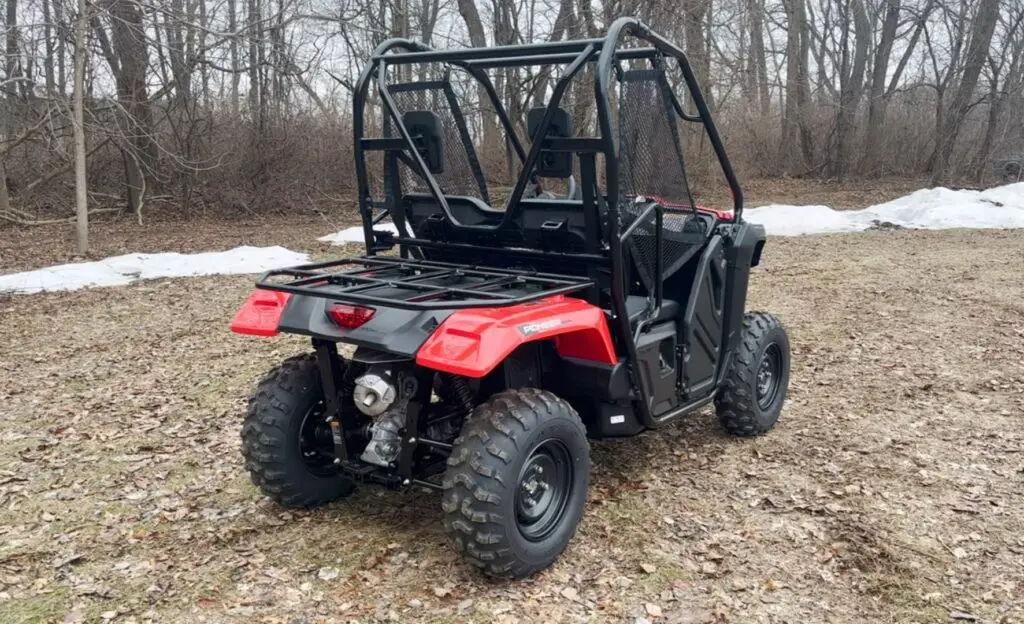
2. Kawasaki Mule SX
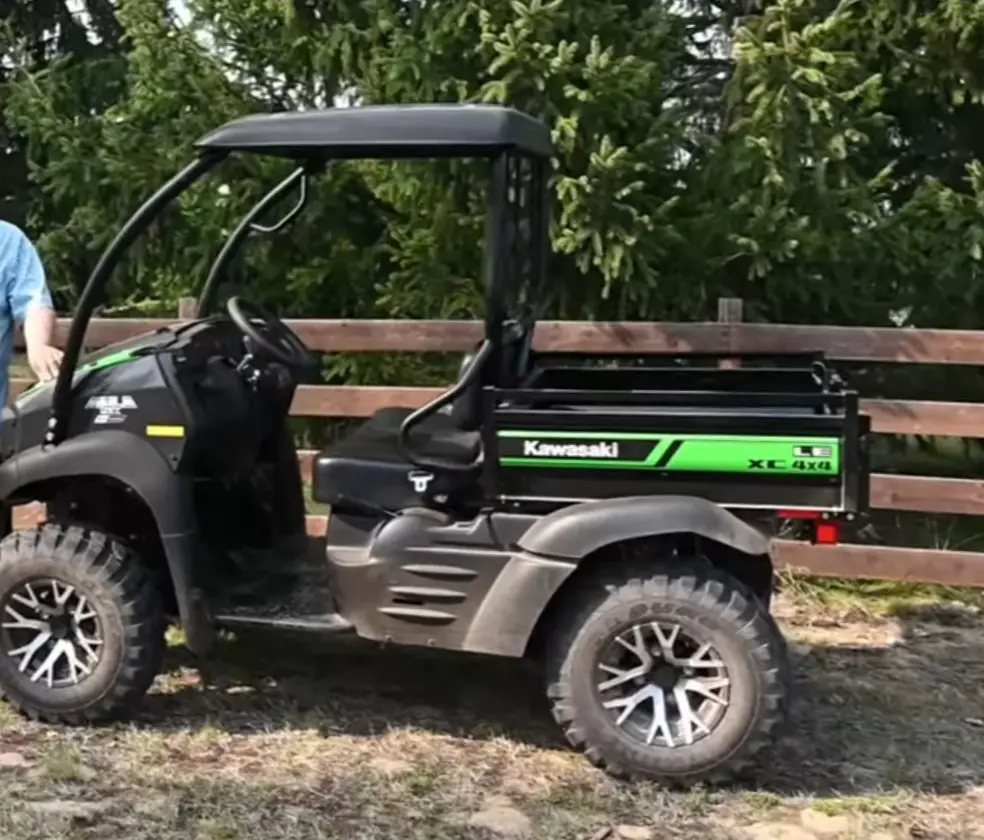
3. CFMOTO ZForce 500
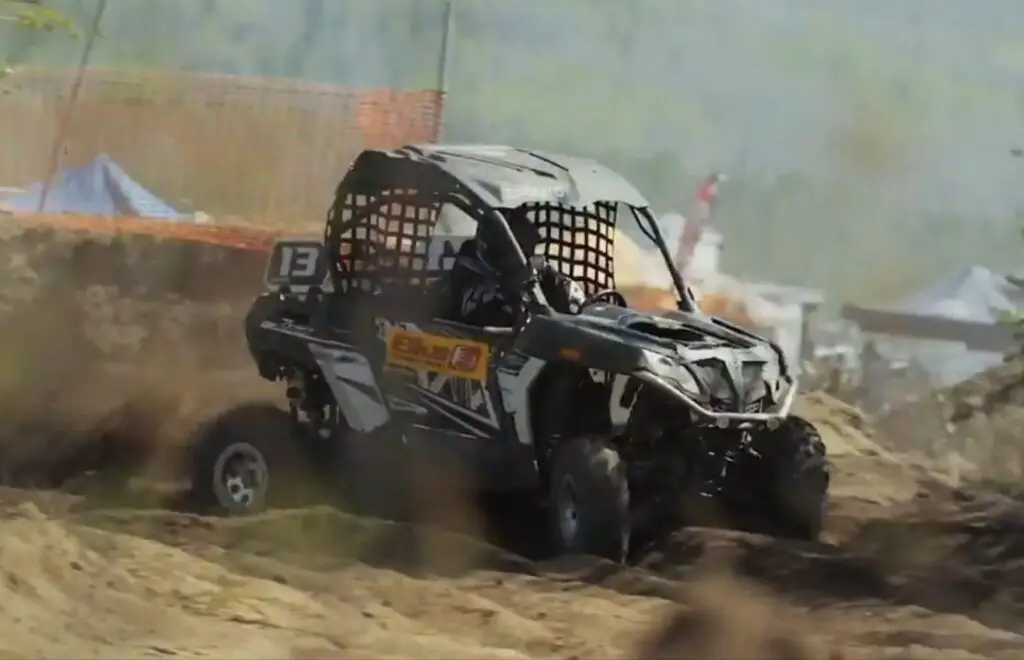
4. Polaris RZR 570
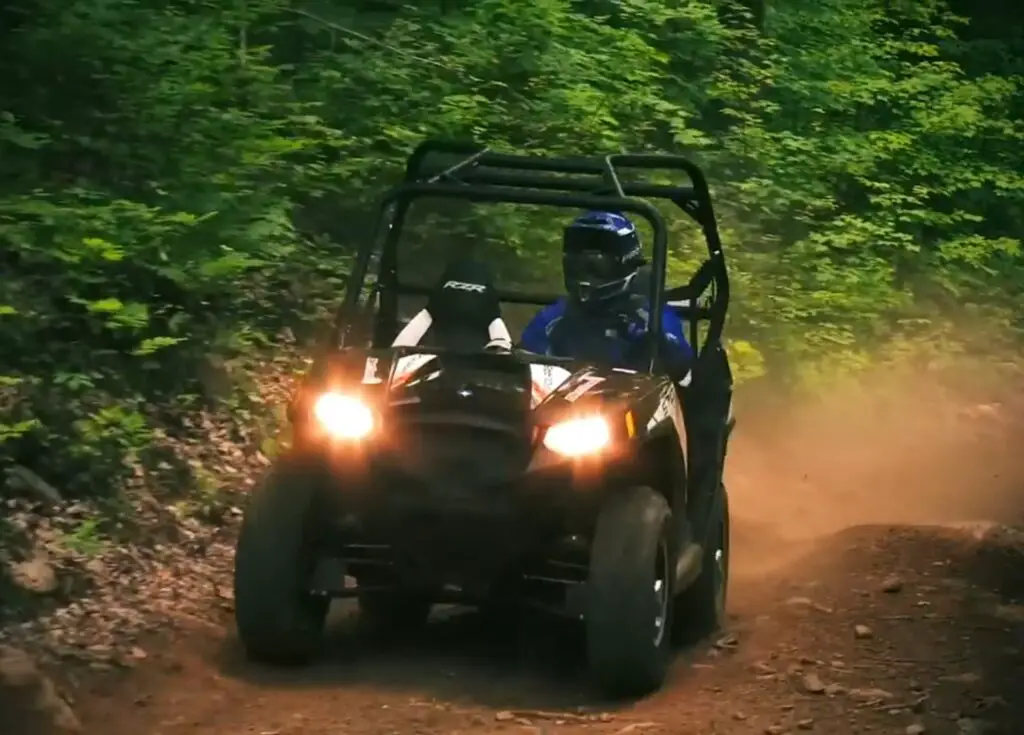
5. Tracker 800SX
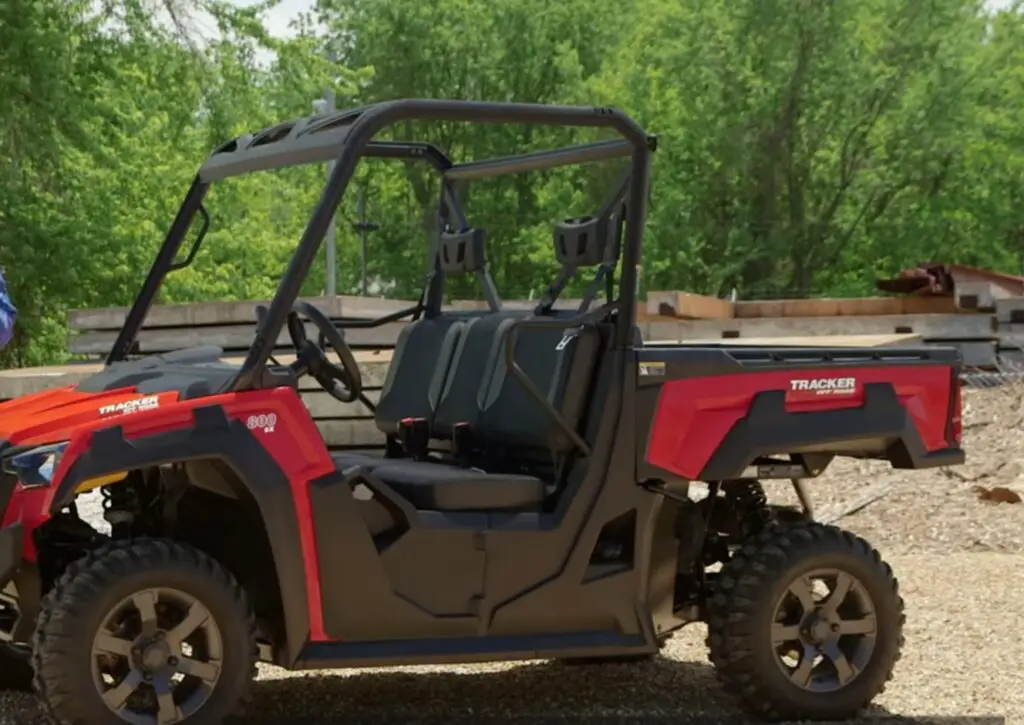
What are the best electric UTVs available on the market?
The best electric UTVs are Polaris Ranger XP Kinetic, Intimidator Classic EV, Volcan Stag, etc…
1. Polaris Ranger XP Kinetic
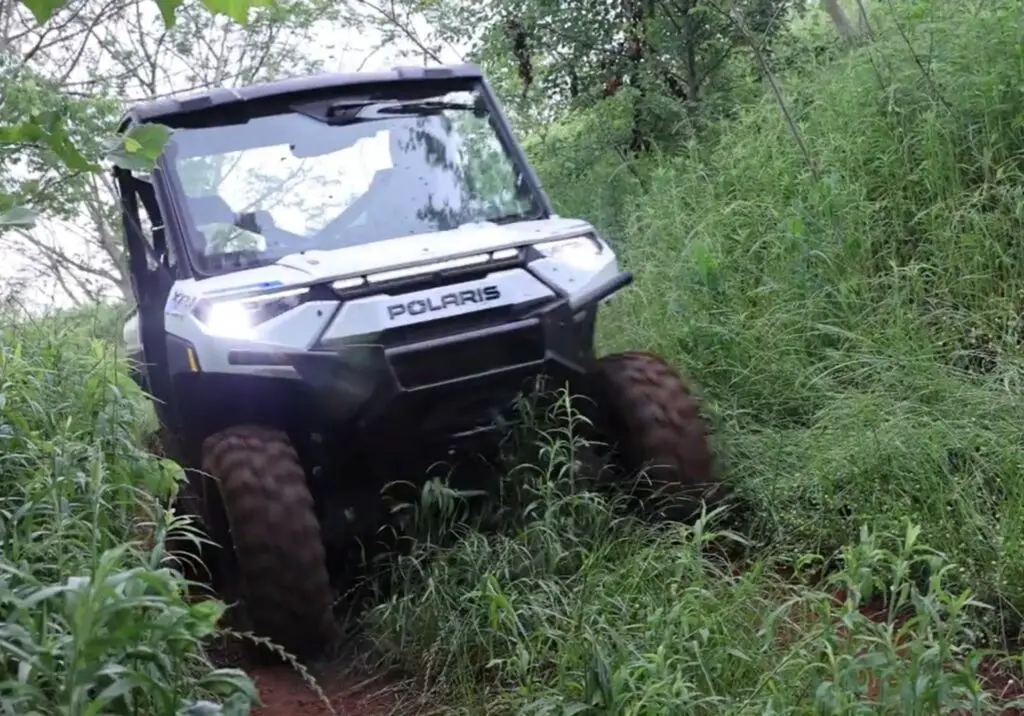
2. Intimidator Classic EV
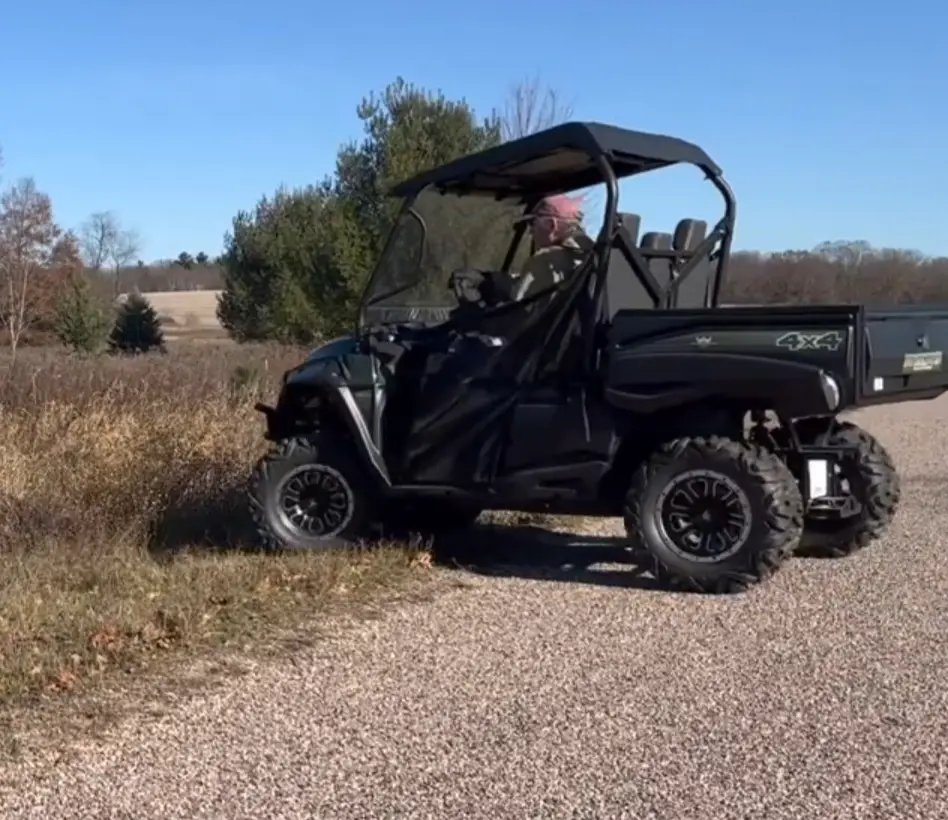
3. Volcon Stag
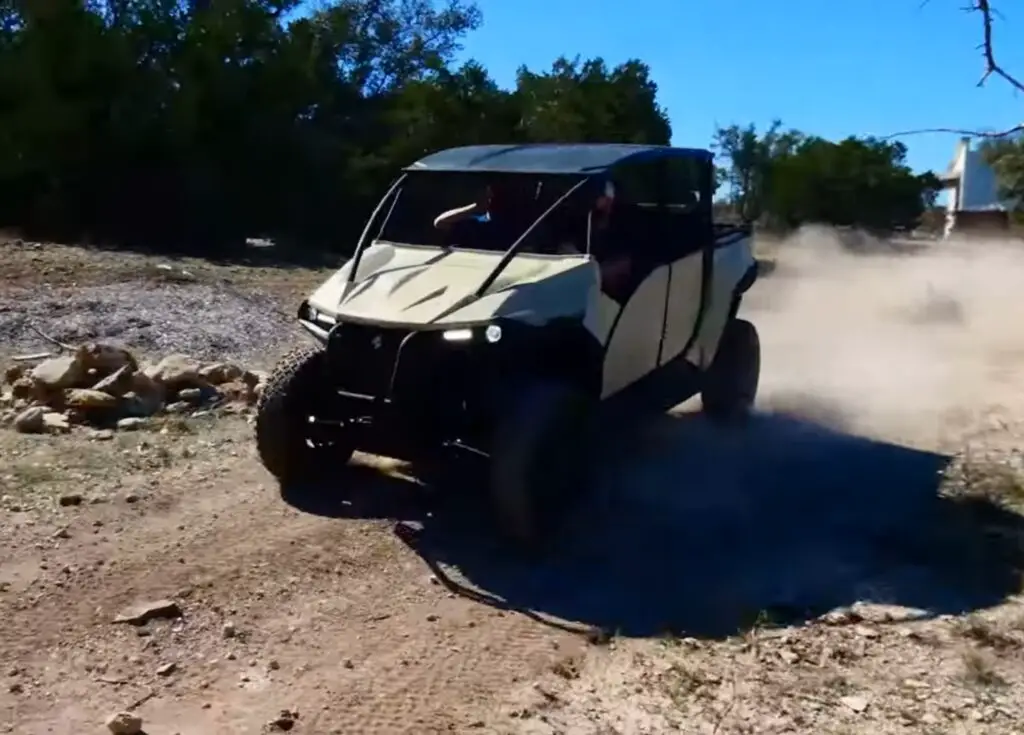
4. Cushman Hauler 800 EliTE
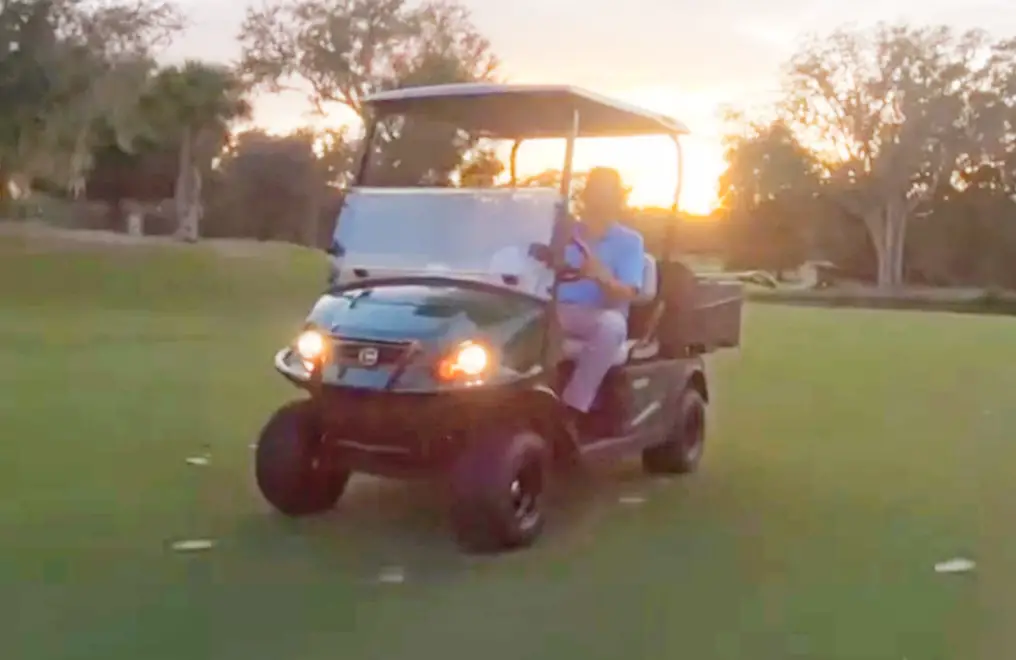
5. E-Z-GO Express L6
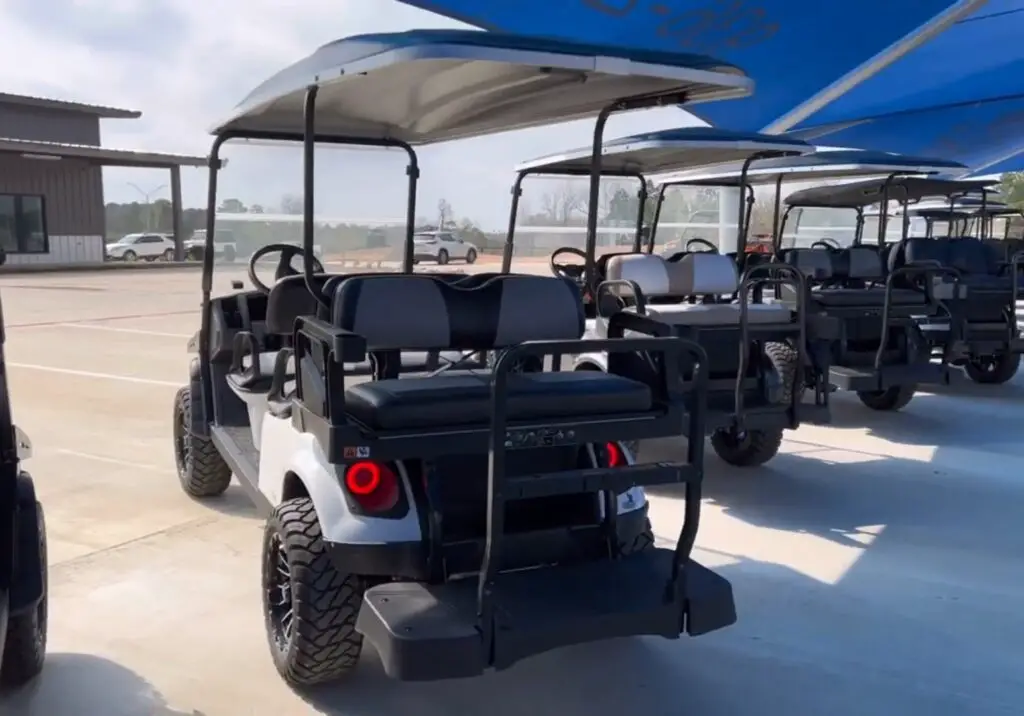
UTVs and ATVs, side-by-side, are versatile off-road vehicles designed for applications ranging from recreational to utility.
UTVs, also known as Utility Task Vehicles or Utility Terrain Vehicles (UTVs), are famous for their great payload and towing ability.
There are, usually, ATVs equipped with a roll cage for improved safety or all-terrain vehicles, including quad or four-wheel drive vehicles, which are only good for riders and are generally used on steep surfaces.
Both types of off-road vehicles (OHVs) are suitable for demanding applications in a variety of environments, such as roads, hunting, and agriculture.
The American National Standards Institute (ANSI) provides safety guidelines, including consideration of the Gross Vehicle Weight Rating (GVWR) to ensure the vehicle is suitable for specific applications.
Although UTVs offer a wide range of payloads and passenger capacity though, ATVs are small, maneuverable, and perfect for off-highway recreational vehicle (ROV) applications.
It also depends on whether or not roll cages and other safety measures are preferred in models.
Wondering about the world of UTVs and ATVs? Get to know the rugged Massimo T Boss 550, or explore other exciting Massimo models for your next adventure!
Subscribe for Our Latest Posts! Thank you!
